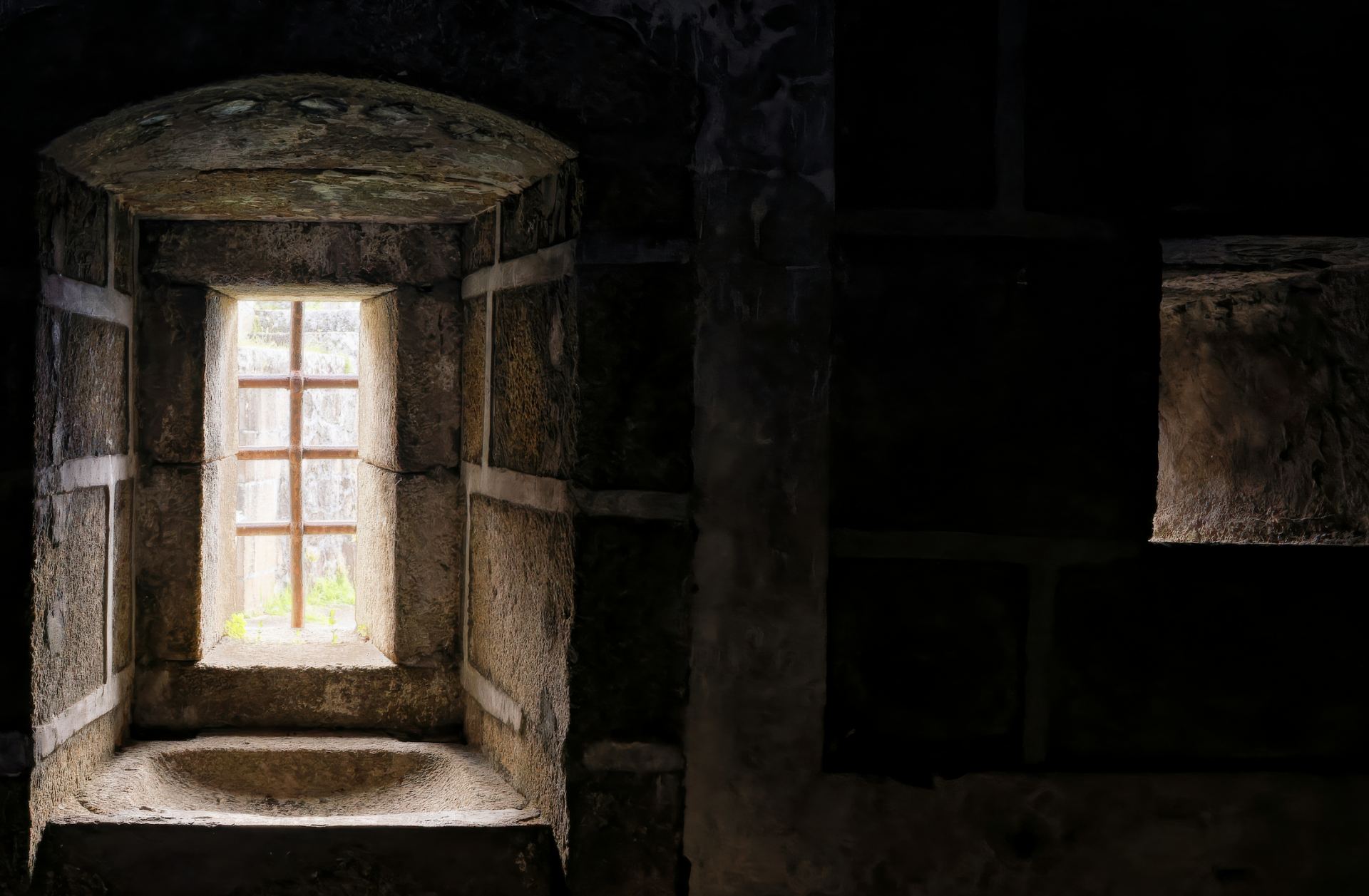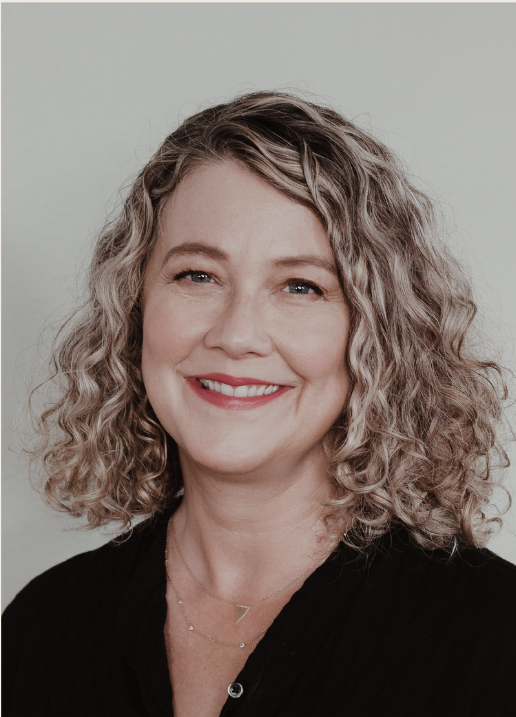Love and Patience
Aug 24
/
Terra McDaniel

Love & Patience:
Learning from Julian of Norwich’s Wisdom
Julian of Norwich’s Showings are food for my soul. I have needed spiritual mothers and fathers to guide me in my journey. I need to know what they thought, what they wondered, how they lived. I need to know that they lived. I wonder if you do, too.
She was odd in many ways, at least to modern eyes. I’m an introvert but can’t fathom living as an anchorite. That level of isolation is hard to imagine. I can’t imagine spending a lifetime looking at the same walls and (perhaps) the same small square of garden instead of walking for miles when I feel like it.
And I can’t imagine praying for illness. I’m not convinced it was good she did. But I need her perspective as someone who survived a deadly pandemic with her faith and sanity intact. I need the ways she is a woman of her time with its different questions and frameworks. And I’m thankful that even though she denied being a teacher, calling herself “a woman, ignorant, weak and frail,” she was confident the revelations she’d received were from God and that her only choice was to pass on their wisdom.[1]
Sickness and Suffering
The idea that Julian longed for illness and prayed for it as if it would be a gift is certainly off-putting at first glance and frankly at a second one as well. She describes a “desire of my will to have by God’s gift a bodily sickness, and I wished it to be so severe that it might seem mortal, so that I should in that sickness receive all the rites which the Holy Church had to give me, whilst I myself should believe that I was dying...”[2] I am not at all sure that is the sort of thing Jesus intended in his invitation to die daily or Paul meant by filling up what was lacking in Jesus’s suffering.
Yet after living through the Covid-19 global pandemic, I have fresh perspective on her prayer. Julian was born in the days of the Black Death in which the Bubonic plague caused the death of between 76 and 200 million people. Her formative years would have been marked by calamity. She was around five years old when the peak years of the plague began and around eight when the illness began to wane in ubiquity while remaining a menacing presence. She was thirty and a half years old when she experienced a life-threatening illness and her Divine vision.[3] It was unusual for a woman that age to be unmarried in her day. It’s possible Julian was a widow. She may have lost children to the plague. Or maybe the disease left her orphaned and without traditional prospects for marriage and family. Without doubt, she would have witnessed death up close and have had an idea of the scale of loss of life in the world around her.
Maybe she thought about Jesus as a mother because it was a role she longed for. Perhaps it had to do with missing her own mother. Maybe she pondered illness because she was trying to make sense of the carnage around her. And there is no question that just as we carry the painful and disruptive experiences of our pandemic in our bodies and souls, she carried the weight of loss in hers. Trauma therapist Aundi Kolber counters the cliché ‘what doesn’t kill you makes you stronger’ with the understanding that “What doesn’t kill us can actually make us isolated, traumatized, and deeply harmed if we don’t receive the support we need as we go through it.”[4]
She explains that our nervous systems “highly prioritizes show over tell—or, to put it another way, lived stories over statements of fact” and that while words matter profoundly “if they are not grounded in something that feels true in our bodies, they won’t stick.”[5] Maybe her wish for illness and the decades after her recovery spent pondering her vision were about the kind of holy restoration in body, soul, and spirit that can only come on the other side of honoring the depth of suffering and harm.
Whatever the case, her prayer is certainly a check on a tendency to paint life with God as being about health and prosperity. Her desire was born of a deep love for Jesus and a desire to identify more fully with him. She prayed for a temporary sickness to more fully identify with his crucifixion. But she wasn’t a sadist. She didn’t enjoy pain, nor did she desire to live as an invalid. And afterward, she realized that God “…wants us to accept our tarrying and our suffering as lightly as we are able, and to count them as nothing” not because pain doesn’t matter but because we can trust God will deliver us in due time.[6]
All Things Well
I am only beginning to delve into the depths of God’s love and grace that Julian plumbed. She pictured all creation as something as tiny as a hazelnut in God’s hand, sustained only because “…God loves it; and thus everything has being through the love of God.”[7] She understood love as God’s central motive. She celebrated this but wondered about how suffering and evil fit into that framework.
God revealed that because of great love, through grace, and by Jesus’ sacrifice, brokenness is somehow transformed into honor.[8] The Divine answered her doubts by declaring, “I will make all things well, I shall make all things well, I may make all things well and I can make all things well; and you will see that yourself, that all things will be well.”[9] That sounds like a God I want to know better. It sounds like the God I’ve met in the stories of the Bible and whose Spirit comforts me.
I have much more to learn from Julian and the Lord she knew (knows!?) so well. Meanwhile, I am relieved that God seems to be patient with distracted or slow students: “…I did not at once pay attention to this revelation. And our Lord very courteously waited until I was ready to attend…”[10] Of all the riches of Love’s wisdom, I continue to be most moved by patience and kindness like that. The kind that makes real and sustained wholeness possible. Kindness and trust that all will indeed be well at last sparks the only type of change that goes all the way down to our bones. In his paraphrase of Romans, Eugene Peterson said it this way: “God is kind, but he’s not soft. In kindness he takes us firmly by the hand and leads us into a radical life-change” (Romans 2:4, the Message).
If you want to continue savoring Julian’s wisdom, consider meditating on any of her words in this meditation that calls to you today.
[1] Julian of Norwich, Showings (trans. Edmund Colledge, OSA and James Walsh, SJ), (Mahwah: Paulist Press (1978)), 135.
[2] Ibid, 126.
[3] Ibid, 177, 179.
[4] Kolber, Audi, Strong Like Water (Carol Stream, Tyndale (2023), 5.
[5] Ibid, 49, emphasis in original.
[6] Julian of Norwich, in Invitation to Christian Spirituality, John R. Tyson, ed, (Oxford: Oxford University Press, 1999), 161.
[7] Ibid, 130.
[8] Ibid, 154.
[9] Ibid, 151.
[10] Ibid, 153.

Terra McDaniel
Terra is a spiritual director, pastor, teacher, and writer who loves making space for people of all ages to tune into their own souls. Terra is convinced that the Spirit is working both within the church and outside it and feels particularly called to host those who feel spiritually homeless.
You can find her on Facebook, Instagram, and at terramcdaniel.com.
You can find her on Facebook, Instagram, and at terramcdaniel.com.

